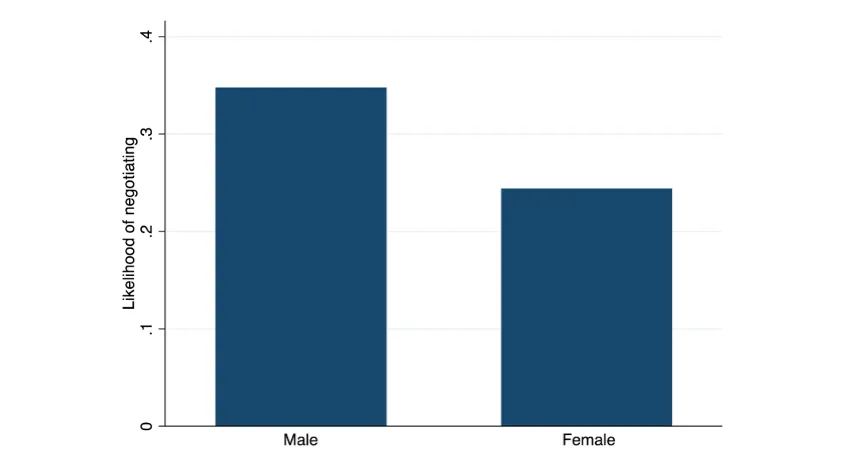08 March 2024
Transparency is an important weapon in the fight for gender equality
Vanessa Hirneis, Michael Sanders
A simple, low-cost intervention could help narrow gender pay gaps. We’ll be testing it at King’s

This year, as with other years, International Women’s Day will draw our attention to the continuing divides within our society between men and women. While there have been important steps taken to close gender gaps, and girls and young women now outperform their male counterparts educationally, there is still a substantial gender gap in terms of professional outcomes.
One tool for tackling this is the requirement for employers with more than 250 employees to publish their gender pay gaps. This metric is, of course, imperfect: a firm in a male-dominated industry that seeks to improve matters by positively discriminating in their graduate hiring round will be penalised by the inclusion of more women in junior roles. But it is nonetheless a useful tool for helping us to understand the extent of inequality on an important outcome.
Even allowing for the potential for perverse incentives, it clearly works – a 2020 paper by the economist Jack Blundell and colleagues concluded that, as an intervention, it has the effect of reducing gender pay gaps by 19%, suggesting that transparency really does have a powerful impact.
Another area which shows promise for transparency is around the gender gap in negotiating salary. Here, the evidence is fairly clear that women are less likely to negotiate their salary than their equivalently qualified male peers. Solving this can take two approaches – either changing the behaviour of the prospective employee, or changing the rules that govern the employer side of the relationship, like banning salary negotiation. These bans are effective where they are enforced, but in a competitive labour market, those firms that will negotiate have an advantage overall, making it a challenging position to consistently adopt.
Changing the behaviour of individuals is in general less effective, and is potentially problematic, situating the need to solve the problem on those affected by it. However, as a university responsible for educating the graduates of tomorrow, it is perhaps where an institution like King’s can have the biggest impact. A recent survey we carried out with 250 UK graduates found that men were 67% more likely to negotiate their salary than women.

This is highlighted by a paper by Patricia Cortés and colleagues, in which they tested a short information intervention that showed the effects of negotiating salary, as well as highlighting the gender gap – in short, making what information about negotiation transparent that was normally hidden.
In a study over several academic years, they found that this intervention significantly narrowed the negotiation gap between genders, with consequences for the pay gap that emerged. Such a simple, low-cost intervention has the potential to make a lasting impact, and that’s why we’re pleased to say that we’ll be piloting a version of the same intervention here at King’s, with the hope of seeing similar effects. Watch this space.
Michael Sanders is Professor of Public Policy and Director of the Experimental Government Team in the Policy Institute, King’s College London.
Vanessa Hirneis is a Research Associate in the Experimental Government Team at the Policy Institute, King’s College London.


